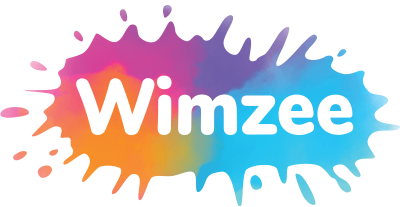Dance! It’s not just about moving your body; it’s about expressing who you are and where you come from. African dance? That's a whole new level of joy, creativity, and cultural connection. Let's break it down!
The Creative Explosion of African Dance
African dance is an incredible blend of rhythmic movements that let you express your inner artist. Picture each dance step as a brushstroke on a canvas, creating a vivid masterpiece with your body. It's like painting, but with movement, letting creativity flow freely. Each move tells a story, a visual narrative that speaks to the heart.
For kids, this means thinking outside the box. Each unique rhythm and step invites them to explore new ideas and perspectives. Whether it's the energetic jumps of the Zulu dance from South Africa or the fluid motions of the Kpanlogo dance from Ghana, there's a story and a culture behind every move.
African dance isn't just about physical expression; it's a way to tap into your creative potential. By learning and mastering these dance forms, kids can develop a stronger sense of identity and self-expression. They get to be storytellers, using their bodies to convey emotions and cultural narratives. It's a vibrant mix of tradition and innovation, a celebration of life through movement.
So, when kids engage in African dance, they're not just moving their bodies; they're engaging in a form of creative expression that helps them see the world in new and exciting ways. It's an explosion of creativity that extends far beyond the dance floor.
Getting Fit the Fun Way
African dance classes are an exciting alternative to traditional workouts. Imagine swapping your mundane gym routine for high-energy dance moves that make your heart race and muscles burn, all while having a blast. African dance isn't just about the moves—it's a complete workout that leaves you feeling exhilarated and alive.
Boosts Cardiovascular Health
Engaging in African dance is a fantastic way to improve cardiovascular health. The rhythmic and high-intensity movements get your heart pumping, enhancing your lung capacity and promoting better blood circulation. You’ll be sweating buckets, but the joy and energy of the dance make it feel like play, not work.
Enhances Endurance and Muscle Tone
The diverse movements in African dance work out various muscle groups. From your core to your legs and arms, every part of your body gets a workout. Over time, you’ll notice improved muscle tone and increased endurance. The continuous movement helps build stamina, making everyday activities feel easier and more manageable.
Fun for All Ages
One of the best parts about African dance is that it's suitable for everyone. Kids and adults alike can participate and enjoy the benefits. It’s a sneaky way to get fit because you’re so immersed in the fun and rhythm that you forget you’re even exercising. For kids, it's a playful way to burn off energy and improve coordination, while adults can enjoy a lively way to stay in shape.
Key Benefits of African Dance
- Burns Calories: You can torch a significant amount of calories without even realizing it. The energetic moves keep you active and help in weight management.
- Improves Flexibility: The various dance steps stretch your muscles, enhancing flexibility and reducing the risk of injuries.
- Boosts Mood: The lively music and rhythmic movements release endorphins, reducing stress and making you feel happier.
- Builds Community: Dance classes often foster a sense of community. You’ll meet new people and make friends while dancing to vibrant beats.
Get ready to groove and improve your health with African dance. It’s time to ditch the treadmill and experience the joy of moving your body to the rhythm of life!
Understanding Cultural Appreciation Through Dance
African dance is more than just movement—it's a profound celebration of history, tradition, and unity. Each dance tells a story, reflecting the values and beliefs of various African cultures. It's like opening a vibrant, living history book.
A Window into Cultures and Traditions
Every African dance carries its own narrative, offering a glimpse into the culture it originates from. For example, the Zulu dance "Indlamu" showcases the strength and rhythm of the warriors, while Ghana's "Kpanlogo" dance is a joyful celebration of community. The dances are more than just steps; they embody the history and values of the people who perform them.
Connecting Generations and Geographies
African dance connects people across different generations and geographies. It's a universal language that transcends borders. When kids in the United States learn a traditional dance from Nigeria, they're not just learning moves—they're connecting with children from another part of the world. This creates a sense of unity and shared humanity that's incredibly powerful.
Teaching Traditions and Heritage
For kids, learning African dance is an engaging way to understand and appreciate cultural heritage. It's like a fun history lesson where they get to move and express themselves. Through dance, children learn the importance of traditions and the rich tapestry of their cultural heritage. This knowledge fosters respect and appreciation for different cultures, which is crucial in our diverse world.
African dance is not just an art form; it's a bridge that connects the past with the present, and people with each other. Whether you're a kid learning about your roots, a parent wanting to pass on traditions, or a creative professional seeking inspiration, African dance offers a dynamic and enriching experience.
Coach K.’s African Dance Class Experience
Energy and Enthusiasm
Coach K. isn't just about teaching dance steps; he's all about bringing high energy and enthusiasm to his African Dance classes. Imagine a room filled with laughter, rhythmic beats, and kids moving joyously. Coach K. doesn't just instruct; he creates an environment where every kid feels like a dance star. The energy is infectious, making it impossible not to smile and join in.
Immersive Experience
His classes are more than just learning moves. They offer an immersive experience that goes beyond the physical steps. Coach K. dives deep into the cultural significance of each dance, sharing stories and traditions that bring the movements to life. This isn't just a dance class; it's a journey into the heart of African culture. Kids learn to appreciate the rich history behind each dance, making the experience both educational and fun.
Feeling the Music
Coach K. believes in the power of music to transform. His classes teach kids to feel the music, not just hear it. The drumbeats and rhythms become a language of their own, guiding each step and movement. It's about expression and letting the body communicate joy and passion. Kids learn to move with the beat, letting the music flow through them, creating a dance that's as much about feeling as it is about movement.
Self-Expression and Joy
African dance in Coach K.'s class is all about self-expression and joy. The kids are encouraged to let loose and express themselves fully. There's no right or wrong way to move; it's all about finding your unique rhythm and enjoying the process. This approach helps build confidence and allows kids to discover their own style. The joy in the room is palpable, with every child leaving the class with a big smile and a sense of accomplishment.
Benefits of African Dance
African dance offers numerous benefits beyond just being a fun activity. It helps improve cardiovascular health, enhances coordination, and boosts mood by releasing endorphins. The repetitive rhythms and movements also aid in stress relief and provide a form of physical exercise that's engaging and enjoyable.
How to Get Started with African Dance
Coach K.'s 'African Dance' Class
Getting started with African dance has never been easier, thanks to Coach K.'s 'African Dance' class. This class is designed for kids and focuses on introducing them to the vibrant world of African dance.
Benefits for Kids
African dance offers a unique opportunity for kids to explore and appreciate diverse cultural expressions. It’s not just about learning steps but understanding the stories and traditions behind each movement.
- Physical Activity: The energetic movements help improve cardiovascular health, flexibility, and coordination.
- Cultural Appreciation: Kids get to learn about different African cultures, fostering a sense of global awareness and respect for diversity .
- Confidence Building: Mastering new dance steps can significantly boost a child's confidence and self-esteem .
Signing Up
Parents can easily sign up their kids for Coach K.'s class. It's a great way to watch them discover the joy of cultural expression. The class is structured to be fun and engaging, ensuring that kids remain enthusiastic about learning.
What to Expect
The class covers a variety of African dance styles, each with its own history and significance. Here's a sneak peek into some styles your kids might learn:
- Gumboot Dance: Originating from South Africa, this dance involves rhythmic stomping and clapping, often performed with boots.
- Kpanlogo: A popular dance from Ghana characterized by its lively and expressive movements .
- Eskista: A shoulder dance from Ethiopia known for its unique and intricate movements .
Why African Dance?
African dance is more than just an activity; it's a celebration of life and culture. It allows kids to connect with their roots and understand the rich heritage of African traditions. Plus, it’s a fantastic way to stay active and healthy.
Coach K.'s 'African Dance' class is the perfect start for any child interested in dance. Sign them up today and watch them thrive in a world of rhythm and culture!




